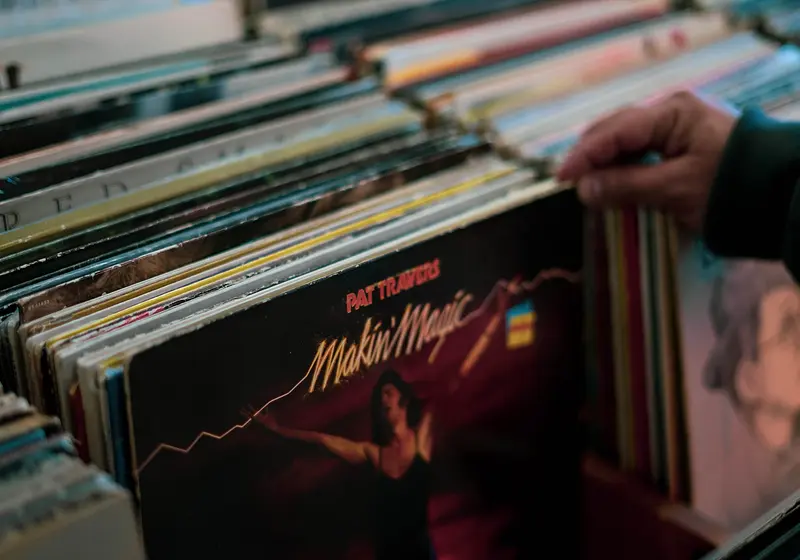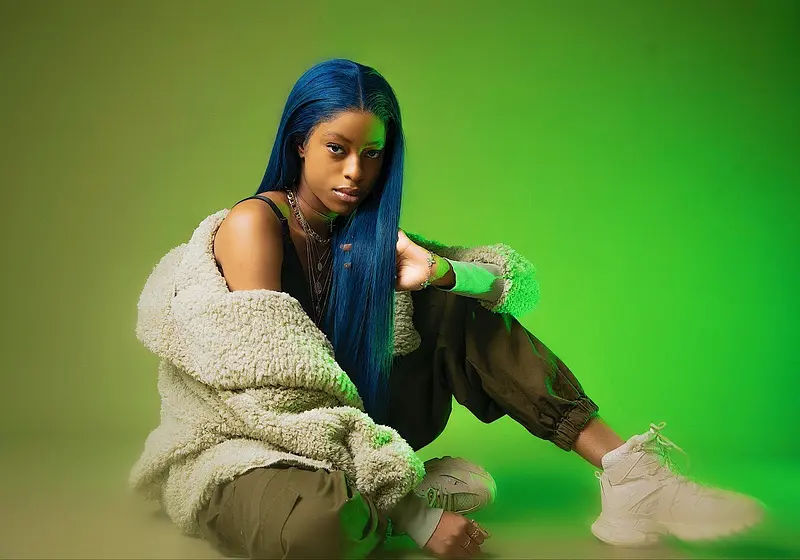Cultural understanding through music is a powerful way to bridge the gaps that separate us. Music, as a universal language, transcends borders, languages, and barriers, and it can be a means of connecting people from diverse backgrounds. By immersing ourselves in the melodies, rhythms, and lyrics of different cultures, we gain insights into their history, values, and emotions.
It allows us to walk in the shoes of others, experiencing their joys and sorrows through the medium of sound. As we listen, learn, and share in the harmonies of the world, we come to understand that beneath our apparent differences, we share a common thread of humanity, bound together by the universal language of music.

Let us slide into your dms 🥰
Get notified of top trending articles like this one every week! (we won't spam you)The Crane - Don't Mind
Language: Taiwanese
The Crane is an indie Taiwanese artist beloved by many. People who are familiar with him call him by his real name "Lin Taiyu". In 2015, he began to release electronic folk-oriented music as the "Other" band.
He has been a musician for HUSH, Zheng Yinong, and other bands. Before becoming a singer, he had been a producer, musician and arranger. working both behind the scenes and not.
In an interview with Polysh he said, "It wasn't until after the album was released that I realized that 'Don't Mind' really had such an influence." He reflected on himself from the feedback and no longer blindly pursued the eccentric path. He was glad he put out (Don't Mind) which was not complex, twisty, alternative, or special. “It makes the whole album sound like it's not about to do a very important homework. Instead, different people can get some nutrients they want to take in.”
The beat, lyrics, and visuals of the music video are all absolutely stunning.
Take the Quiz: Which Boy K-Pop Band Do You Belong To?
Take this quiz to find out which Korean boy band you would fit into!
Mohammed Assaf - Dammi Falastini
Language: Palestinian Arabic
This is a song currently viral on TikTok that might have you wondering more about the singer and his origins.
Mohammad Assaf is a Palestinian pop singer well known for being the winner of the second season of Arab Idol, broadcast by the MBC network. His victory received worldwide coverage from the media and was welcomed with joy by Palestinians and the rest of the Arab world. He was named ambassador of culture and arts by the Palestinian government and was offered a position with "diplomatic standing" by Palestinian President Mahmoud Abbas.
He was born in Misrata, Libya to Palestinian parents. He lived there until he was 4 years old, and when his parents moved back to Gaza, he grew up in a refugee camp with a middle-class couple. His mother's family hails from the village of Bayt Daras, which was captured and depopulated by the nascent IDF in 1948 and his father's family is from Beersheba.
Assaf's mother stated Assaf began singing at the age of five and “had the voice of someone who was much, much older.” He entered the public view in 2000 during a popular local television program where he called in and sang a Palestinian song to the host's praise. Afterwards, he was frequently offered contracts with local record companies.
While Assaf normally avoided politics on the show, he said, "I can't differentiate between my art and my patriotic attitude." Assaf condemned the ongoing Israeli occupation of the West Bank and the poor living conditions in the Gaza Strip. He also stated Palestinian prisoner Samer Issawi's long-term hunger strike protest had inspired him. He frequently dons the checkered keffiyeh which is popularly associated with Palestinian liberation.
Assaf’s humble beginnings resonate deeply with Palestinians everywhere and his 2015 song “Dammi Falastini,” meaning “My blood is Palestinian,” is a ballad of both Palestinian existence and resistance. While “Dammi Falastini” doesn’t call for riots or outline any specific call to action, it is an act of resistance. Assaf confidently announces the heritage of the Palestinian bloodline which cannot be erased, even by the occupier’s relentless efforts.
Due to Western Imperialist censorship, the song has been taken down from Spotify and Apple Music. Here is a YouTube link for the song.
Ersay Üner - İki Aşık
Language: Turkish
Ersay Üner is a Turkish pop music singer-songwriter. He became known in Turkey in the 2000s by writing and composing songs for Demet Akalın. His 2017 single "İki Aşık" became a major hit and was viewed more than 200 million times on YouTube.
It is not surprising to see why it is so popular. Ersay Üner sings of young love in İki Aşık. A relationship the lovers knew was going to end, but they decided to be together regardless.
His voice overflows with despair and anguish and it makes me emotional. His choice to keep his music video in monochrome just further adds to the sorrow. It is almost as if all the colour has been drained from the world.
Neto Fagundes - Canto Alegretense
"Canto Alegretense" is a song composed by Nico Fagundes and Bagre Fagundes in honour of the municipality of Alegrete. The authors consider it to be from 1983, when it was played for the first time on the television program Galpão Crioulo. It has since been performed by several musicians, including Alcione, who in one of his shows had to repeat it four times as an encore.
The origins of this song are as follows:
In the early 80s, Antonio Augusto Fagundes, better known as Nico Fagundes, was a lawyer in the capital Porto Alegre. A colleague asked Fagundes where Algrete, his hometown, was. He simply replied: “Don't ask me where Alegrete is, follow the direction of your own heart!” This phrase stuck in Fagundes's head, and he immediately took a piece of paper, put it in his typewriter and wrote a few more verses.
He said that in less than 10 minutes, the lyrics were ready. He analyzed it, put it in his briefcase and took it home. Sometime later, his brother, Euclides Fagundes Filho, known as Bagre Fagundes, saw the verses and was impressed. So much so that he took them back to Alegrete to set them to music. You can read the full story here.
The song has a beautiful rhythm and melody. I believe we should all take more pride in our roots. This song feels like the epitome of that idea to me.
Yemi Alade - Baddie
Language: Mainly English and Pidgin
Yemi Aldie is a Nigerian singer, songwriter, dancer, humanitarian, model and fashionista. Her music incorporates Afro, Highlife, Dancehall, Pop and R&B has been of influence in many African countries and the world. She is acclaimed "Mama Africa" because of this and her versatility as she uses different African languages and attires in her songs and their music videos.
The nickname “Mama Africa” speaks for itself as a testament to her career and her impact as an artist. She has sung in English, Igbo, Pidgin, Yoruba, French, Swahili and Portuguese.
In an interview with AMAKA, she said, “My originality is because I genuinely love the culture the most. Culture is the most amazing thing and culture drives the music, it drives the fashion, it drives everything.” In another interview in Marie Claire Nigeria, she said "I am carrying generations before me and also making the way clear for generations after me." I simply love listening to this song. The vibes hit so hard.
Roop Kumar Rathod, Harini, Andrea Jeremiah & G.V.Prakash Kumar - Pookkal Pookkum
Language: Tamil
This is a song from a movie called Madharasapattinam. The song's title literally means “blooming flower.” The main reason I have chosen for this song to be on the list is because the lyrics are extremely poetic. The movie also has many other equally-amazing songs and the film shows off Indian the culture such as the customs of people in Tamil Nadu.
Movie Synopsis:
After the death of her husband, Amy Smith, an elderly English woman, returns to India to search for her long-lost lover and return a necklace she was given. Through memory flashbacks, we see how Amy as a young girl first arrived in Madrasapattinam, India in 1945 to join her father who was the governor of the city. Through some events of fate, she meets Paritihi, a young Indian boy.
Amy, feeling drawn towards Paritihi and intrigued by Indian culture, asks him to be her guide around the town and to show him the ways of his country. Soon, a tender romance develops between them. However, Amy is to be married to Officer Robert Ellis, a cruel man appointed by her father, forcing Amy and Paritihi to fight for their love.
Ayra Starr - Rush
Language: Nigerian Pidgin
Oyinkansola Sarah Aderibigbe, known professionally as Ayra Starr, is a Beninese-born Nigerian singer. She began a fashion career at the age of 16 with Quove Model Management before deciding to pursue a career in music.
Ayra Starr’s “Rush”, which was released in September 2022 topped music charts in several countries. It swiftly moved up the charts and became the number-one song in the country just a few hours after its release. In an interview with The Nation, Aderibigbe said, “When I wrote ‘Rush,’ I was in a phase where I was so unsure of myself.
And I grew up a very confident person. I felt like everything I was, was someone else’s idea. It wasn’t me. So, I wanted to find myself… To be in charge and that’s when I made ‘Rush.’ So, it was like my song. Yeah, this is who I am. Take it or leave it!” In another interview with NME she said her current creative mindset involves going along with the vibes she's feeling at the moment rather than forcing something.
She's also said, “It’s amazing to know I represent Black African women and young girls.” I added this song so more people feel seen by this playlist. I understand how almost-cathartic it can be to see a physical manifestation of your story or dreams in front of you. On top of that, this song is just so fun and vibe-y. Who wouldn't play this on repeat?
Namika - Je ne parle pas français [Beatgees Remix] feat. Black M
Language: Mainly German with some French
Namika (given name, Hanan Hamdi), also known by the stage name Hän Violett, is a German singer and rapper. In 2018, she performed 'Je ne parle pas français' whose remix featured Black M. The song reached number one on the German charts.
I cannot think of a better song to end this list than this song by Namika.The whole song is about falling in love with someone you cannot communicate within a common language. In the case of this song, it's about falling for a French person as a German speaker. The German speaker doesn't understand what the French person is saying and relates this, saying, “Je ne parle pas francais, but urges the French person to keep talking simply to continue the conversation and to hear their voice.
You can read the lyrics here. I like to think of it as love being transcendental despite cultural or linguistic barriers. In the quiet spaces between our words, where language falters and falls away, there exists a love that transcends the boundaries of speech. It's a love that dances in the silence of our shared moments, an unspoken symphony of the heart.
"Around us over a thousand people,
They talk over one another,
But the language which we speak,
Only we can understand." - Namika
The current world news is depressing, but I have always believed that art will be what saves us all. Especially music. Listening to songs from various cultures (or consuming media in general) is the first step to understanding how other people around the world think. In doing so, it hopefully makes us more empathetic and conflict-averse.


















